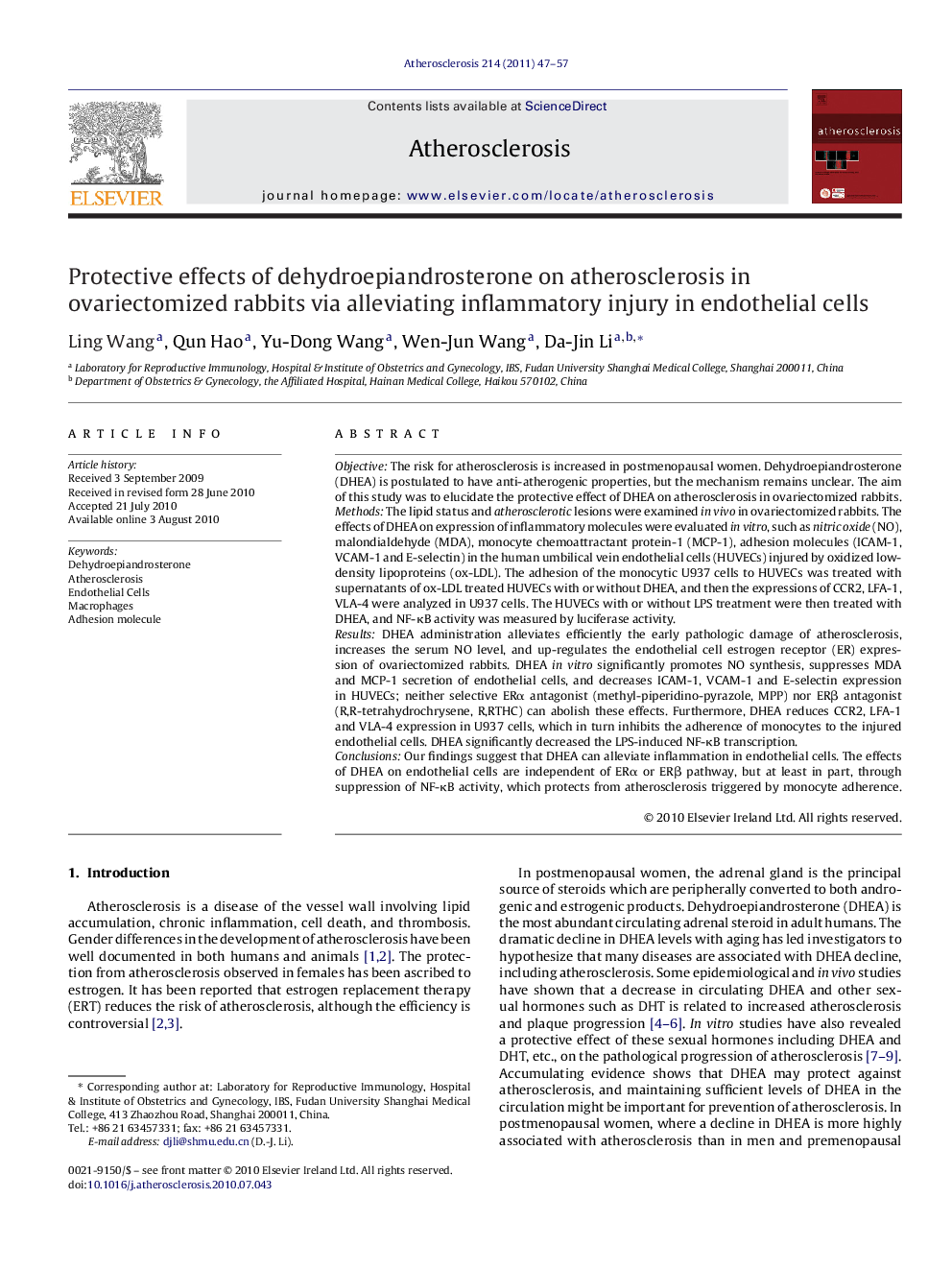| کد مقاله | کد نشریه | سال انتشار | مقاله انگلیسی | نسخه تمام متن |
|---|---|---|---|---|
| 5950420 | 1172398 | 2011 | 11 صفحه PDF | دانلود رایگان |

ObjectiveThe risk for atherosclerosis is increased in postmenopausal women. Dehydroepiandrosterone (DHEA) is postulated to have anti-atherogenic properties, but the mechanism remains unclear. The aim of this study was to elucidate the protective effect of DHEA on atherosclerosis in ovariectomized rabbits.MethodsThe lipid status and atherosclerotic lesions were examined in vivo in ovariectomized rabbits. The effects of DHEA on expression of inflammatory molecules were evaluated in vitro, such as nitric oxide (NO), malondialdehyde (MDA), monocyte chemoattractant protein-1 (MCP-1), adhesion molecules (ICAM-1, VCAM-1 and E-selectin) in the human umbilical vein endothelial cells (HUVECs) injured by oxidized low-density lipoproteins (ox-LDL). The adhesion of the monocytic U937 cells to HUVECs was treated with supernatants of ox-LDL treated HUVECs with or without DHEA, and then the expressions of CCR2, LFA-1, VLA-4 were analyzed in U937 cells. The HUVECs with or without LPS treatment were then treated with DHEA, and NF-κB activity was measured by luciferase activity.ResultsDHEA administration alleviates efficiently the early pathologic damage of atherosclerosis, increases the serum NO level, and up-regulates the endothelial cell estrogen receptor (ER) expression of ovariectomized rabbits. DHEA in vitro significantly promotes NO synthesis, suppresses MDA and MCP-1 secretion of endothelial cells, and decreases ICAM-1, VCAM-1 and E-selectin expression in HUVECs; neither selective ERα antagonist (methyl-piperidino-pyrazole, MPP) nor ERβ antagonist (R,R-tetrahydrochrysene, R,RTHC) can abolish these effects. Furthermore, DHEA reduces CCR2, LFA-1 and VLA-4 expression in U937 cells, which in turn inhibits the adherence of monocytes to the injured endothelial cells. DHEA significantly decreased the LPS-induced NF-κB transcription.ConclusionsOur findings suggest that DHEA can alleviate inflammation in endothelial cells. The effects of DHEA on endothelial cells are independent of ERα or ERβ pathway, but at least in part, through suppression of NF-κB activity, which protects from atherosclerosis triggered by monocyte adherence.
Journal: Atherosclerosis - Volume 214, Issue 1, January 2011, Pages 47-57